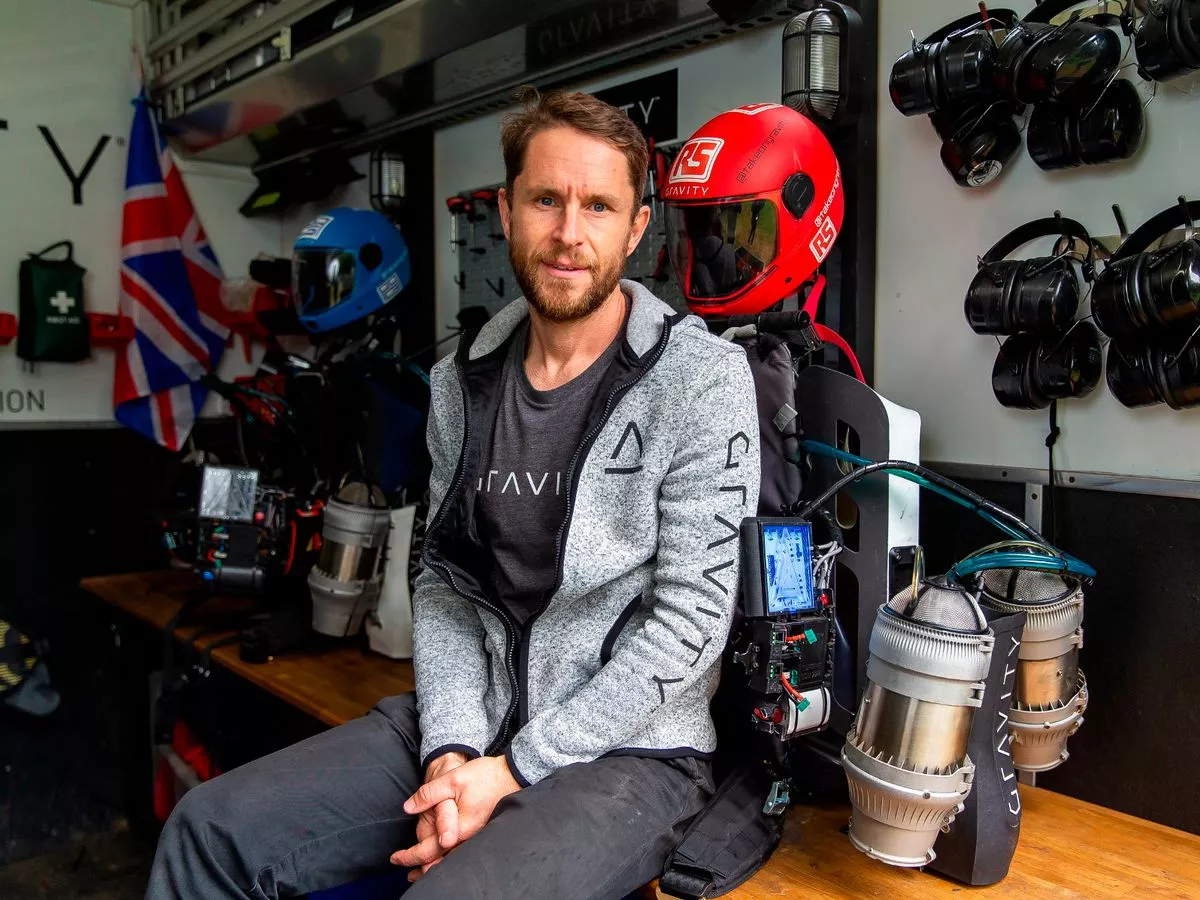Copyright mirror

Britain’s answer to Iron Man has called for business lessons to be made mandatory in school. Richard Browning is the British entrepreneur behind the world ’s first jet suit and his company, Gravity Industries, now valued at £82million, supplies kit to special forces, emergency medics and rescue response worldwide. But he warned Britain was “failing the next generation” by continuing to teach outdated subjects while neglecting skills that will drive innovation and economic growth. He has now backed a petition – launched ahead of Chancellor Rachel Reeves ’ Budget - calling on the government to make business, entrepreneurship and financial literacy compulsory for all secondary school pupils by 2030. Former Royal Marines reservist and BP oil trader Mr Browning, 46, told the Mirror : “Innovation is of such critical national importance that it should be taught so every man and woman on the street has the understanding that it is not some snooty word used by business leaders. It is genuinely the lifeblood of the creation of every product and service we now enjoy, and that generates jobs and opportunities and prosperity and tax revenues. The fact that we have such a dire growth and economic situation is because we have lost sight of this, and it is related to our risk averse culture.” The UK’s national curriculum was last fully updated in 2014, before the explosion of AI and automation. Figures have shown a third of schools still do not offer GCSE Computer Science, and just one in four young adults say they receive any financial education at school. Mr Browning explained: “Innovation and this process of turning seemingly impossible ideas into sometimes really quite big breakthroughs takes a lot of setbacks and failures. That process is so critical to everything and has given us all the technologies we need and enjoy and depend on and given us prosperity and is what generates jobs and gives us tax revenues. “And yet those words, innovation and entrepreneurship, they are barely explained when it comes to school. Why do we almost relish the idea that the Richard Bransons of this world have to struggle uphill with relentless setbacks? “Pretty much every successful entrepreneur has a story of being held back and having naysayers and rules constantly put in their way. We almost celebrate the gritty determination it takes to get it over the line. “It is not good enough that we educate our kids more about pythagoras than tax returns and how to patent things. Why are we leaving it to chance? Ninety percent of the jobs you go into when you leave school are business related but we don’t even really touch on it at school. “It is of national level importance to embrace what innovation is and what entrepreneurship is, especially in a world that is getting so complex with AI.” He says his passion is driven by his father, who invented mountain bike suspension but who killed himself when Richard was 15. “The environment at the time was c***p for entrepreneurs and small businesses. Society if you like looked at him and said, great, you’ve invented this thing but we are going to be sceptical and not celebrate the potential of what this might mean. I witnessed the ultimate in bad outcomes if you like.” Mr Browning, who has flown private displays for tech billionaires Jeff Bezos and Mark Zuckerberg, contrasted the attitude towards entrepreneurship in the UK with the US, and especially California, where new ideas he says are embraced. He believes this risk-averse culture here, as in many countries, can stem from childhood. “We have this school mindset where your objective in life is to get 10 out of 10 in tests. Kids start with a mindset of playing and learning and messing around. I want kids to rip open a Lego box and build a crazy thing that falls apart and then learn and rebuild. I don’t want them diligently following the instructions. What is the point?” He went on: “We need to rediscover a self-confidence of what we can do. A Brunel era of where we used to be proud of making things.” For mental health support, contact the Samaritans on 116 123, email them at jo@samaritans.org or visit samaritans.org to find your nearest branch.



